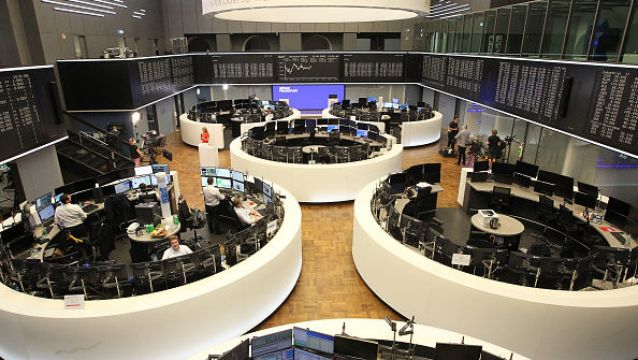Euro zone government bonds fell on Friday, the final trading session of 2022, topping off an historically bad year for European sovereign debt.
The yield on Germany's 10-year government bond was up 4 basis points (bps) to 2.506 per cent, after slipping 4 bps in the previous session. Yields move inversely to prices.
The yield on the German 10s, seen as a benchmark for the euro zone, had risen more than 260 bps this year as of Friday. That marks by far the biggest sell-off going back to the 1950s, according to Refinitiv data.
European yields wavered at the open on Friday but later rose after preliminary data showed Spanish month-on-month consumer price index (CPI) inflation picked up to 0.3 per cent in December, from -0.1 per cent in November.
Core inflation – which strips out volatile food and energy – rose to 6.9 per cent year-on-year in December, from 6.3 per cent.
Ireland's 10-year bond yield was up 6 bps over the last week to 3.011 per cent.
Italy's 10-year yield was last up 10 bps to 4.645 per cent. Spain's 10-year yield picked up 6 bps to 3.591 per cent.
The data was a reminder that Europe is still grappling with stubborn inflation, which the European Central Bank (ECB) is determined to crush through further interest rate hikes.
"The higher than expected month-on-month CPI in Spain triggered the rise in yields in Europe," said Jussi Hiljanen, head of European rates strategy at SEB.
The sell-off in bonds on Friday caps a brutal year for European government debt, which has been hammered by rapid interest rate hikes from the ECB and US Federal Reserve.
The ECB has lifted its main interest rate from -0.5 per cent in July to 2 per cent in December. Higher interest rates cause investors to demand a higher yield on bonds, and so push down prices.
Investors have been digesting hawkish comments from ECB policymakers in recent days.
Germany's Isabel Schnabel said the ECB must be prepared to take the heat and raise interest rates further. The Netherlands' Klaas Knot told the Financial Times that "the risk of us doing too little is still the bigger risk".
Germany's 2-year yield, which is highly sensitive to interest rate expectations, rose 5 bps to 2.712 per cent on Friday. It touched 2.714 per cent earlier in the session, the highest level since October 2008, which was also touched on Tuesday.

The closely watched spread between Germany and Italy's 10-year yields rose more than 5 bps to 212 bps.
"The big picture remains dominated by the aggressive ECB comments we heard earlier this month, and we need to see more data for that view to be fine-tuned," said Jan von Gerich, chief analyst at Nordea.
Von Gerich also said investors are worried about the large amounts of debt governments are set to issue next year, just as the ECB shrinks its bond holdings.
Germany alone plans record debt issuance of more than €500 billion ($533 billion) next year to fund costs associated with the energy crisis and the fallout from the Covid-19 pandemic.







